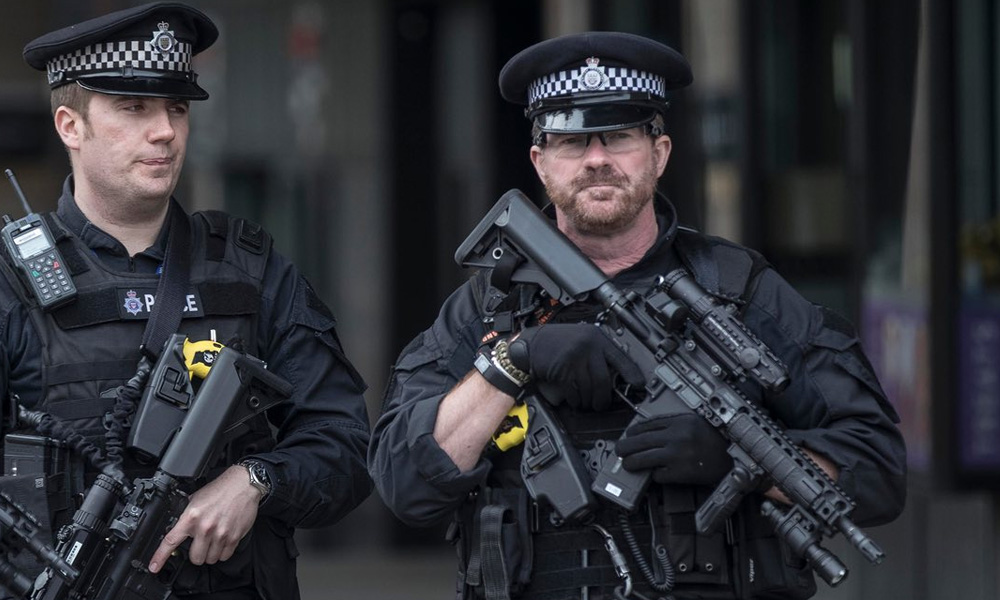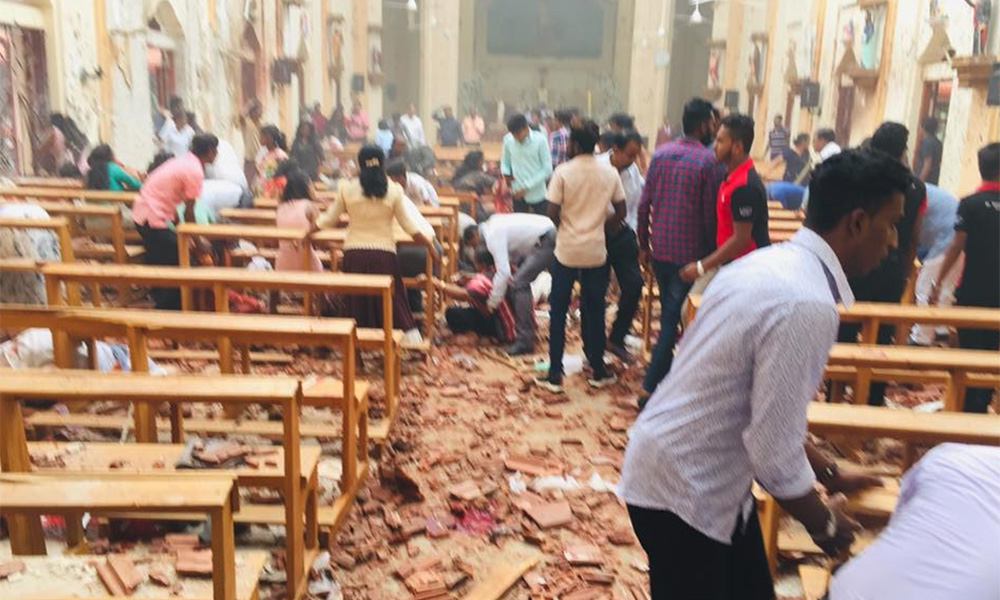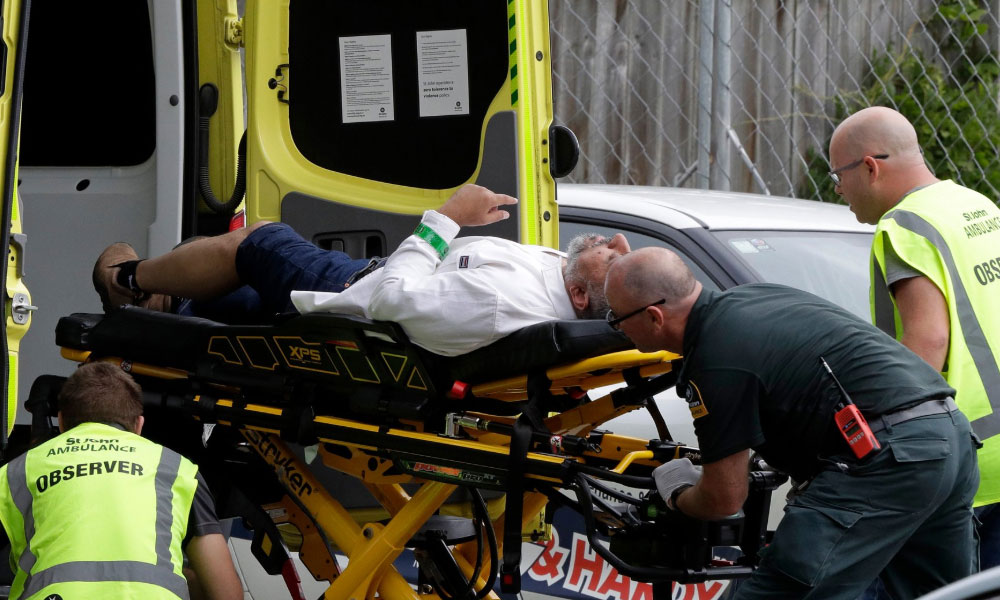
QUESTION TIME | We arrived at Colombo airport, late one night in mid-May.
Due to heightened security after the Easter bombings in Sri Lanka, we had to take a transit bus from the arrival area to outside the airport area to meet our transport, and a two-and-a-half-hour journey to the southern coast near Galle to the resort, arriving there in the wee hours of the morning.
We were the only guests there, occupying two rooms out of seven. At the time that we booked our resort, it was filling up rapidly but the attack on churches and hotels in and near Colombo and on the west coast resulted in major cancellations and very limited tourist flow.
Sri Lanka had already suffered the trauma of a brutal attack on its people by extremists and terrorists - after 10 years of peace since the killing of Velupillai Prabhakaran and his Liberation Tigers of Tamil Eelam, itself a terrorist group. Slowly the country was recovering - and then this.
To compound the brutality of the latest attack, the country is suffering economically as foreigners shun the island, dealing a blow to the vital tourist industry. Confidence waned and inevitably its currency, already under siege by poor economic policies, took a further beating.
We made the decision to go ahead with the trip despite the attacks - one, the resort was in the south where no troubles were reported and two, we decided, where possible, not to give in to economic sabotage by terrorists as long as there was no significant danger to us.
Kashmir trip
Earlier in February this year, an Indian troop bus was suicide-bombed in Kashmir with the loss of more than 40 lives. Coincidentally, we had booked an Indian trip, including several days in Kashmir, before that bombing - and decided to go ahead too.
In both places what we saw was major economic hardship among the people who depended on the tourist trade for a living. Kashmir was beautiful but very poor in many places. People were trying desperately to eke out a living in the wake of a near drying-up of tourist arrivals.
Hotels which were booked nearly full for mid-March when we went, had major cancellations. In one hotel we stayed at, there were no other guests while there was just 10 percent occupancy in another. Houseboats in Srinagar were empty. The atmosphere was one of gloom and doom.
In Sri Lanka, it was the same. Tourists had deserted the island, resorts and hotels were empty. Our guides and drivers talked of beaches and small towns along the coast being full of tourists, even if it was slightly off season and booming business - but not anymore.

On top of the terror, fear, grief, animosity and violence caused by these attacks, the economic effects are horrendous too, affecting millions of others and their families, leaving other scars from which it will take time and a lot of effort to recover.
No one anywhere in the world is immune from terror attacks - it can happen at anytime, anyplace. Even we in Malaysia cannot be complacent.
Recent police arrests in Malaysia show that terrorists here were contemplating attacks on places of worship. How do we fight this ever-present menace?
Extreme vigilance is a necessity. If terrorist attacks have been scarce in the US after 9/11 in New York and elsewhere with some 3,000 killed, it’s partly because an entire nation was mobilised to become the eyes and ears of the authorities.
That helps tremendously to monitor suspicious characters. If people are behaving strangely, it is best to alert the authorities. Sri Lanka paid for it dearly when politics apparently foiled the proper reporting of suspected terrorist activity.
But we need also to go to the source of the cause and pull it out by the roots. What makes people blow themselves up and innocent people - men, women and children as they are praying - in the name of religion and revenge?
What did these poor people have to do at all with the Auckland attack, itself an act of grossly misguided revenge for terrorist activities?
Do they actually believe that they will see their reward in heaven, whatever they envision it to be? Who is putting these suggestions into their heads? What is religion and what are religious heads of all denominations doing to eschew in the strongest possible terms the use of violence in the name of religion?
And why do countries, especially developed ones, ask their people not to visit these countries? We felt safe in Sri Lanka. The strong military and police presence, although intrusive at times, probably made it a safer place post the attacks.
It would be ridiculous for the US, for instance, to issue a travel advisory against New York in the wake of 9/11. Why issue it for Sri Lanka and effectively contribute to the economic sabotage of Sri Lanka, which surely the terrorists intended by sowing terror, fear and lack of confidence.
In fact, the developed countries should be looking at ways and means to assist countries seriously affected by terrorism, instead of unwittingly becoming the tools of terrorists and terrorism by succumbing to this misguided need to protect their own citizens.
New Zealanders issued travel advisory
For instance, look at this travel advisory for New Zealanders wanting to travel to Sri Lanka. It says: “Avoid non-essential travel to Sri Lanka due to the on-going threat of violence and the uncertain security situation. There is an ongoing threat of terrorism in Sri Lanka. Attacks in public places and targeting foreigners are possible.”

This from a country which recently saw the violent death of more than 50 people worshipping at an Auckland mosque. Should Malaysia say that its citizens should not go to New Zealand because of possible targeting? Surely not, because it plays right into the hands of terrorists.
In the meantime, the US advises against travel to Malaysia because of possible attacks. But this is restricted to a very small area in Sabah - nothing has happened outside of that area. Why play into the hands of terrorists that way?
Malaysia needs to ramp up anti-terrorism activity and vigilance, including calling on the public to help monitor possible terrorist activities. But in the meantime, it should keep a close watch on deviant preachers who preach violence and hate against other religions, including expelling the infamous, wanted, hate monger Zakir Naik from our country.
The international community needs to set up a body to specifically counter terrorism and share its information and resources. It needs to blacklist countries that support terrorist activities and which fund the propagation of extremist teachings.
But sadly, little is done in these areas.
P GUNASEGARAM says terrorism as an ideology needs to be killed - nothing justifies that kind of violence. Email: t.p.guna@gmail.com - Mkini
No comments:
Post a Comment
Note: Only a member of this blog may post a comment.